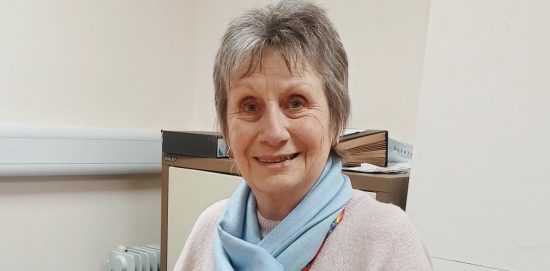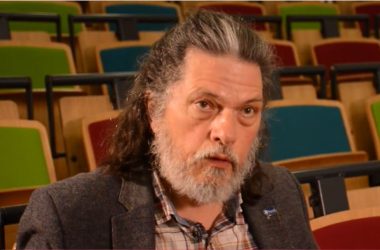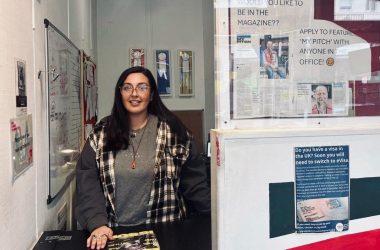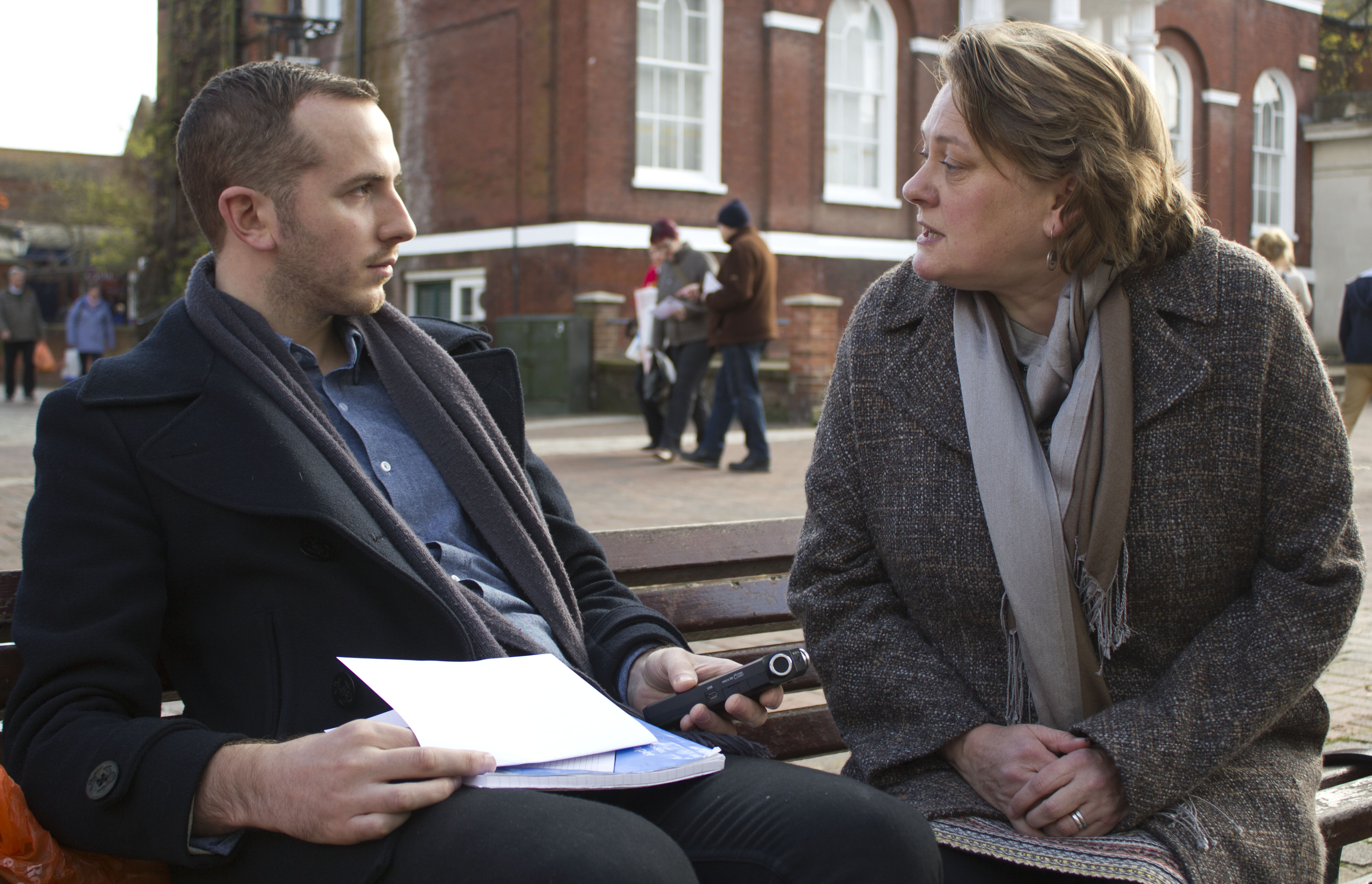As the Lead Member for Communities at the Bournemouth, Christchurch and Poole Council, Jane Kelly plays an important role in BCP’s efforts to mitigate loneliness. She is also the Lead Member on the Council’s Health and Wellbeing Board.
Cllr Kelly represents Boscombe West. She has worked on several community projects, including the Fill your streets with friendliness campaign. Together with As One, the BCP is working on the campaign to strengthen communities by helping establish street associations throughout the area, which is expected to mitigate the loneliness felt by a significant section of the residents.
As part of The Breaker’s focussed coverage on loneliness this week, Affiong Bassey and Joshua Kidd spoke to Cllr Kelly. Excerpts from the interview:
Loneliness is one of the major health concerns today. In Bournemouth, between 14 October 2020 and 22 February 2021, an estimated 6.8% people said they often or always felt lonely. What would be your assessment now?
I know that many, many people do feel lonely and isolated. We’re doing lots of work to try and stop that. We’ve got a great initiative going on at the moment, and it’s all about people connecting and perhaps having little tea parties, inside or outside. [But] you have to really be very careful and slow about bringing people back into those kinds of face-to-face meetings and connections. You have to make sure they feel confident.
I haven’t got the data about how many people are feeling isolated now as opposed to six months ago or a year ago, but I’m sure that there will be quite a high number of those people. I think it’s going to take the summer before we know [the numbers], because that’s when we can meet outside. The Queen’s Jubilee and all those street parties, that will have a big effect and make sure that people can enjoy each other’s company, get out of their houses, start taking up new activities.
What has been the impact of your work on people who you term as vulnerable and especially have there been lonely among these vulnerable groups?
With Covid, the sense of loneliness and isolation has increased massively because people have particularly felt vulnerable to the illness. They kept themselves away, and it’s quite hard after two years to kind of come out of that isolation and to feel safe and confident for going out. There are lots of initiatives currently being offered for people to join together. Firstly, online because that gets you talking to people but not feeling unsafe and vulnerable to Covid. But also face-to-face activities that can help people rejoin their communities. And, you know, meet new people, create new strengths.
When I first became part BCP cabinet, the leader explained to me that he wanted to follow what we call ABCD asset-based community development. That’s about getting our workers to go into communities, find out what’s going on, find out where their strengths lie, and identify natural leaders in every community. And then get them to kind of connect with others who are perhaps feeling isolated. [People] might be really good at knitting or sewing or singing, you know, all sorts of different skills, that they can use to connect with others in their community, and make the neighbourhood stronger and more resilient, because that’s what it’s all about — getting that resilience, that feeling of self-confidence.
We want to find out what people want, what they’re feeling, how much they want to engage with others and join in with activities
What are the challenges you face in addressing loneliness here in Bournemouth — both personally and as part of the Council?
I think the biggest challenge is getting people to engage with the Council, and that’s where our new workers are going to come in. They will be on the ground, working with communities, particularly those in the more deprived areas, to try and, you know, get them to talk about what they feel about their lives, their communities, and what’s going on. So it’s about trying to get people to engage, to show that we are interested. We want to find out what people want, what they’re feeling, how much they want to engage with others and join in with activities.
When you say that people are not engaging with the Council, as they should or could, what would you say is the major issue? Could it be an issue of trust?
Possibly, yeah… what have you done? What have you done for me before? Why should I bother this time? I think the fact that the cost of living is going up hugely… you know, the utility bills, the Council tax we’ve kept that levelled actually this time because we know how stretched people are going to be, but all sorts of things are going up. Costs of living are going up and therefore people will blame the Council, even if it’s not our doing. But I think it is trust, confidence. We really feel that this new way of working with the asset or strength-based way of going into a community and talking about what they’re good at, what strengths they’ve got, and then getting their trust in that way. Then we can find out what they would like us to do instead of trying to make them do what we think.
Bournemouth has over 31,000 elderly population. According to the Dorset Council report in 2019. Westbourne, West Cliff, and Kinson North have the highest count of lonely older people — approximately 330 and 300 respectively. But Boscombe West has the lowest count, about 150 lonely older people. What are you doing differently?
Boscombe West has a very high number of younger single people. And, perhaps in the last couple of years, families as well. I don’t think we really attract the older generations so much in Boscombe West, so I think that’s possibly why those stats have come out.
In West Howe there’s a fantastic charity called West Hill Community Enterprises and they know that they have a high number of older people living there and very many of them are lonely and isolated, and they run a charity shop and a cafe to try and get people to come and join in. They’ve got a knitting club, showing films on a Sunday afternoon, sometimes ways to get people to come together and just dissipate that feeling of loneliness and isolation.
The charity shop is good because it encourages people to come and volunteer there. Volunteering is a fantastic way of getting people to feel better about themselves that they are helping, they’re contributing to other people’s well-being. That is the best way of making your own sense of self-worth.
How can people connect with you? Connect with BCP? In terms of, I am lonely, I need help and I need someone to reach out to. How can I do this?
Well, you can write to me, and I can signpost you to organisations, primary care, and to do memory sessions.
It could be really hard getting across to the Council. I mean, across the world it can be tough getting across to politicians. The Smart Place programme comes up when you search on the BCP web site, and when I clicked on that it said about helping to reduce loneliness. It then gave a paragraph that didn’t actually say anything about how it’s reducing loneliness, but just that it’s going to have an impact.
Are you saying there is nothing on the website that is helpful? Because I find that very upsetting and I’ll do something about it.
BCP website talks about reducing loneliness and isolation, about digital interaction, use of emerging technological devices for addressing loneliness and health and social care. And then a paragraph saying that the BCP Smart Place Policy will help to reduce loneliness. It does not say how it would. Do you know how?
I do know about the Smart Place Policy in terms of adult social care. I know from my colleague who is the portfolio holder. She wants to get more digital things like Alexa, Google devices, smart-speakers. That is what we want to have in more elderly people’s homes; the ones who live on their own so that even when they don’t have a care worker there, which is becoming more and more difficult to provide, they have some way of connecting with someone.
I don’t want to feel like we’re letting people down as I believe, perhaps, we are at the moment
We are still, two years on, trying to get our Bournemouth, Christchurch and Poole websites aligned and made user-friendly. The Council put in another million and a half for next year to make things happen more quickly because we’re not getting any brownie points for our customer services at the moment. We need to, because people are experiencing real difficulties, not only with loneliness, but with financial issues and mental health problems in general. It’s really important that we are accessible and that people can find what they want on our website or find a phone number. I don’t want to feel like we’re letting people down as I believe, perhaps, we are at the moment.
What do you think would be the solution to loneliness in Bournemouth? In terms of funding and other aspects?
I’m hoping the Fill your street with friendliness project will get people talking. And that is what’s key, isn’t it? To get people talking. It is something that you can talk and say look, I need to chat with people. I need to find like-minded people or even people to argue with. Just to come out of yourself and connect with others. I think the summer is going to help and the Jubilee. Once we’ve got all our new community workers on the ground, they’re going to find out a lot about what’s going on, and who is behind those doors. People in the road know Mrs So-and-so at #43. She never comes out, so let’s go knock on the door and ask her how she is. Not everybody wants to be talked to, but we need to ask those questions and not just think that, “Oh well, if she doesn’t come out that must be alright.” It is not all right.
This interview has been edited for brevity and clarity.








